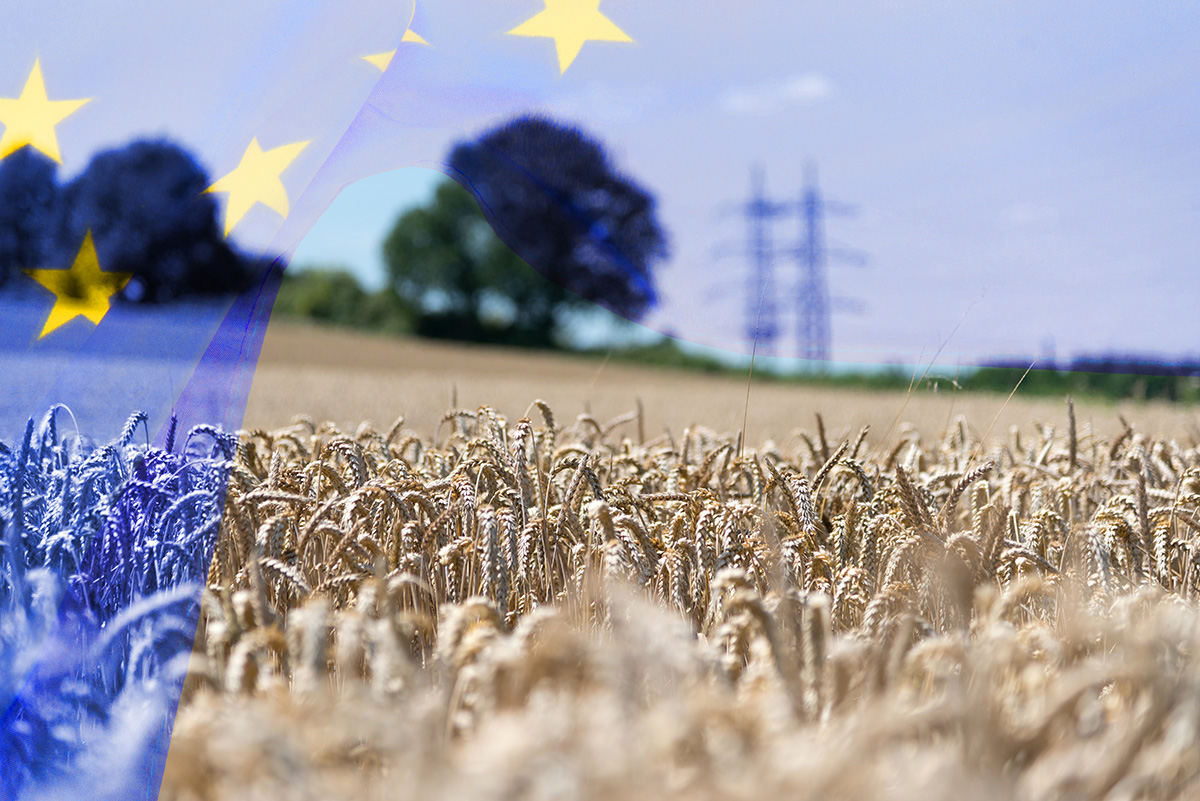As the five-year countdown to the 25%-organic-by-2030 target begins, will 2025 bring the ‘game-changing’ policies leading organic advocates are calling for? 2025 is a year of unavoidable symbolism for Europe’s organic food and farming industry, marking the beginning of a five-year countdown to the EU’s 25%-organic-by-2030 target. To date, progress towards meeting the 25% target has been variable, with member states moving at very different speeds.
In November 2024, the European Environment Agency warned of the “high certainty that the (25%) objective will not be met by 2030”. Two months earlier, the European Court of Auditors identified “persistent gaps and inconsistencies” in policy support. Meanwhile, analysis by the Thünen Institute suggests that organic’s share of total EU farmland in 2030 is likely to stand at around 15%, significantly short of the 25% target figure.
But instead of plunging the organic sector into collective gloom, these warnings have galvanised the industry. Leading actors have mobilised to demonstrate how examples of best practice, policy support and market stimulus from organic front-runners – such as Denmark and Germany – can “be taken down from the shelf to drive rapid transition today”, as the prominent Danish commentator, Paul Holmbeck, has put it.
Bring on the game-changers
Holmbeck says that “the best policies come from when policy makers work in close dialogue and collaboration with the organic sector”. He cites Germany, committed to achieving 30% organic agriculture under its Organic Strategy 2030, as a prime example. Holmbeck argues that hitting the 25% target will require “game-changer” policies, such as lower VAT on organic food. But he also points out the importance of active sectoral engagement with ministries and policy makers. “In the countries I have been working with I often find that ministry officials genuinely want to upscale organic, so we – the organic industry – need to be there providing technical and policy support.
Paul Holmbeck: “Hitting the 25% target will require “game-changer” policies, such as lower VAT on organic food”
Motor for change
Michaël Wilde, founder of The Organic Embassy, is clear that the Farm to Fork strategy–and its 25% organic target–remains the principal “motor for change”. He was in London in late 2024 to explain how a new national action plan is reinvigorating the Dutch organic industry. With the bold objective of growing organic agriculture from the current 5% of cultivated farmland to 15% by 2030, the plan – backed by €80 million of government funding – is now driving growth across the whole sector. He commented: “Farm to Fork is the reason why we have an action plan, it’s the reason why supermarkets are moving forward, it’s the reason why large companies are saying that 20 to 25% of the food we serve to our employees must in future be organic.
We don’t have to defend organic anymore
“What’s so important about this is that we don’t have to defend organic in the Netherlands anymore. This is the Dutch government saying that organic is a key part of the solution for sustainable agriculture transition. This makes it much easier for us to move forward together with companies, NGOs and municipalities. We can now say to them: Don’t choose organic because the Dutch Government wants you to use organic – choose organic because it enables you to fix the challenges you have.”

Unprecedented consensus
In September 2024, the European Commission published the final report of the Strategic Dialogue, a major-cross sector review of EU food and farming that aimed to “shift the debate away from the current polarisation”. Ordinarily, this might not be the sort of thing to get the blood pumping. But the report’s standout conclusion that organic “is the only regulated sustainable production system that already delivers environmental and climate protection” provided an energising end-of-year boost for the sector.
IFOAM Organics Europe president, Jan Plagge, captured the significance of this development at a hearing of the European Parliament Committee for Agriculture when he commented on the “unprecedented consensus” behind the declaration.
‘Don’t conflate regenerative with organic’
While it is likely that a toolbox of approaches – organic, agroecological and regenerative – will be needed to achieve the sustainable agriculture transition, there is growing concern that regenerative agriculture (or ‘regen ag’) is becoming a significant vehicle for greenwashing. But we are now starting to see European regulators clamping down on this damaging trend. In November, the UK’s Advertising Standards Authority issued new advice aimed at “cultivating compliance” in the regenerative agriculture sector. And the watchdog has warned companies specifically “not to conflate regenerative with organic”.
Analysis by the Thünen Institute suggests that organic’s share of total EU farmland in 2030 is likely to stand at around 15%, significantly short of the 25% target figure
Urgent climate priorities
The devastating effects of global heating seen across Europe in 2024 will bring added urgency to the climate impacts of agriculture in 2025 and could finally produce a decisive shift in governmental recognition of the huge mitigation potential of organic and agroecological farming systems.
Despite the framing of the 2024 farmers’ protests as ‘anti-green’ by parts of the media, their actions have served to highlight deeper problems that exist in farming – low farm gate prices, inflated land prices, small farm decline and, increasingly, crop failures due to the direct effects of global heating.
Away from the headlines, the reality is that many farmers want to be responsible stewards of the land. As Michaël Wilde said in London: “Most farmers I speak to, particularly the younger ones, want to farm sustainably and are often open to organic – but they want to be supported and paid properly for helping with the sustainable farming transformation.” We must hope that in 2025 that their message is heard, so that the momentum for substantive change becomes irresistible.
Author: Jim Manson, Journalist
Article Originally Published in Bio Eco Actual International Yearbook 2024 – Trends 2025.
The article Game-changing policies are needed to make it a ‘high five’ appeared first on Bio Eco Actual.






